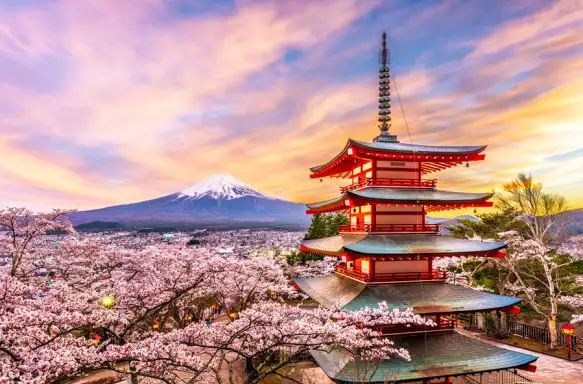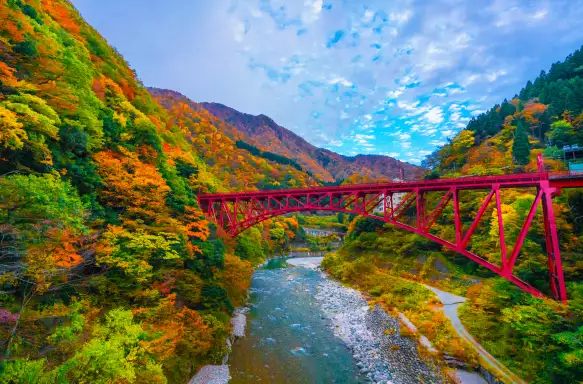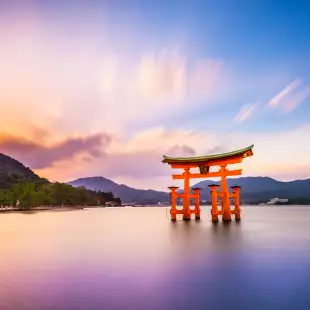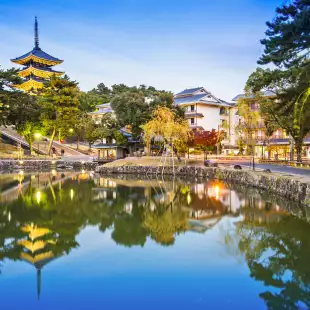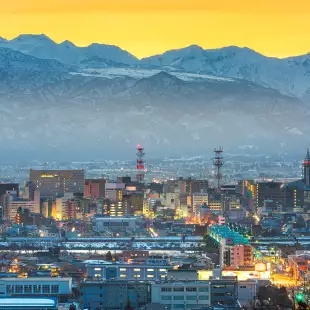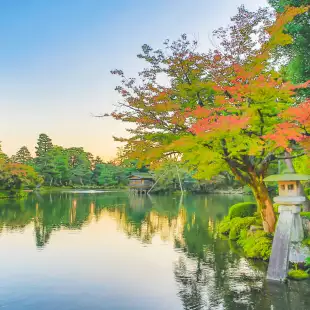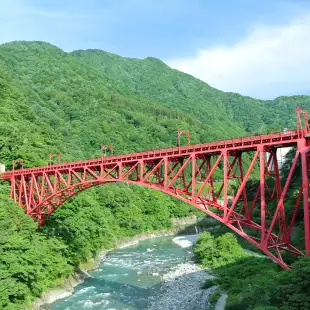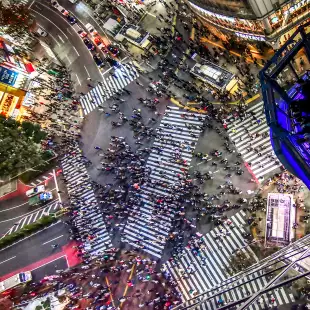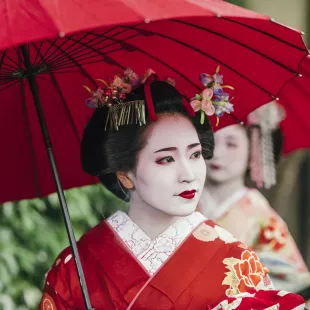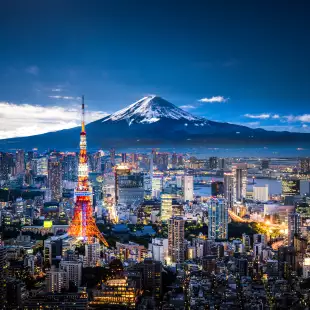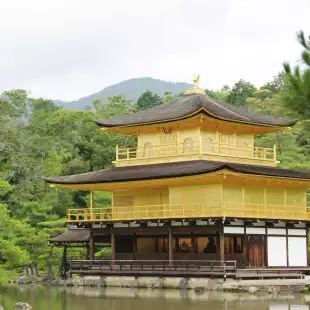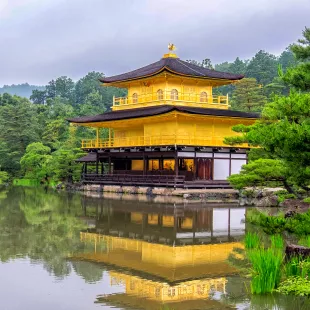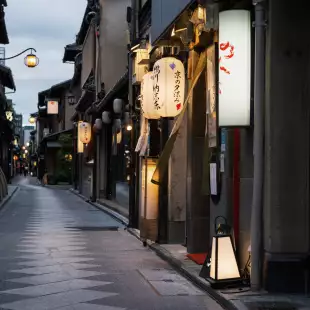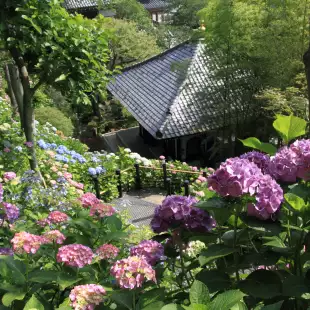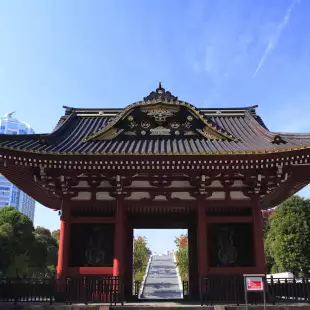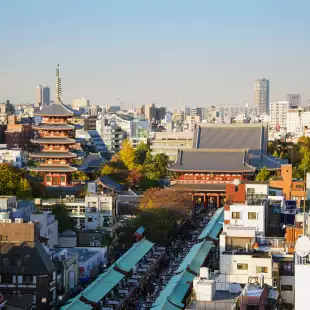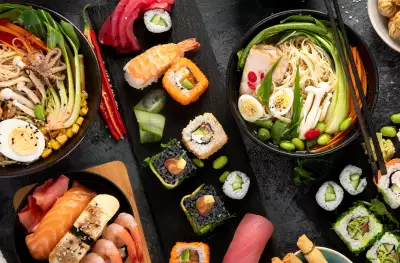Things to know before you visit Japan
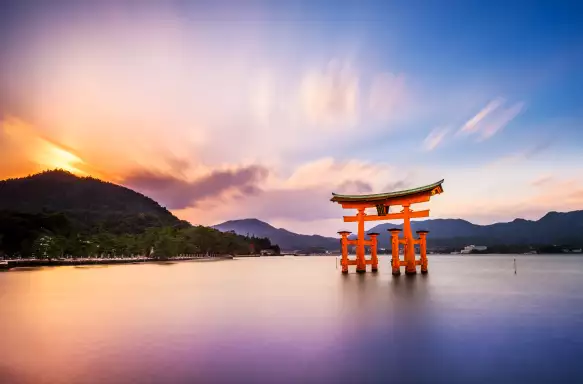
Japan is a country that seamlessly blends ancient traditions with futuristic innovation, offering visitors an experience unlike any other. From centuries-old temples and breathtaking natural landscapes to world-class cuisine and cutting-edge technology, Japan is a destination that captivates travellers of all kinds. Whether you’re an adventure enthusiast eager to explore scenic mountains, a cultural connoisseur fascinated by history and tradition, or a luxury seeker looking for top-tier hospitality, Japan has something special to offer.
To make the most of your trip, preparation is key. Before you travel to Japan, you need to know visa requirements, currency tips, useful Japanese phrases, and cultural etiquette - so you can navigate Japan with ease and confidence. Understanding these details before you travel will not only help you avoid unexpected challenges but also ensure a smoother, safer, and more enjoyable journey. So let’s get you ready for an unforgettable adventure!
Visa and entry requirements for travelling to Japan
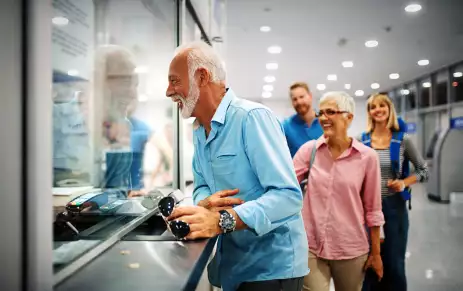
When travelling to Japan, British citizens do not need a visa for stays up to 90 days, meaning they can enter visa-free; however, they must have a valid passport that covers the duration of their stay and may be asked to show proof of onward travel - like your return flight - upon arrival.
British citizens can embark on an adventure to Japan without a visa for stays of up to 90 days, embracing the freedom of visa-free entry. You will have to ensure your passport is valid for the entire duration of your stay in Japan, and you may have to show evidence of your onward journey - e.g. your return flight home - when entering the country.
If you plan to spend over 90 days, you are travelling on business or plan to study in Japan, you must apply for the appropriate visa at the Japanese embassy or consulate, located in Piccadilly in London for British citizens.
It is advisable to check what items can and cannot be taken through customs in Japan before you start packing. Prohibited items include meat products, plants and plant products, certain medications - including common cold and flu medicines - without a prescription, illegal drugs and weapons.
While health insurance is not legally required to enter Japan, we highly recommend securing insurance before you travel. Japanese healthcare is widely considered among the best in the world, thanks to its universal coverage, high quality of care, and focus on preventative medicine, however, it can be expensive for tourists without insurance.
In the unlikely case of an emergency, dial:
- 110 for the police
- 119 for fire or medical emergencies
You can find out more about Japan's entry requirements on the Gov.uk website.
Useful Japanese phrases
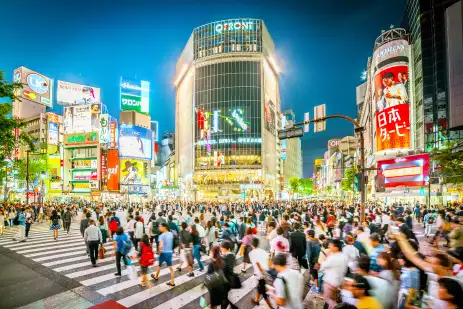
Our top tip for travelling to Japan is to learn a few useful phrases to make your interactions easier. Embracing basic Japanese phrases before your holiday can transform your travel experience. It empowers you to navigate new destinations with confidence, engage meaningfully with locals, seek directions, savor delicious food, and express yourself in delightful conversations. Even without fluency, your efforts show deep appreciation for the vibrant culture, creating a connection that enriches your adventure with authentic moments.
Here are a few key Japanese phrases for tourists:
Yes and no:
- Hai - yes
- Lie (ee-eh) - no
Japanese phrases for greeting:
- Konnichiwa (koh-nee-chee-wah) - Hello
- Ohayo gozaimasu (O-ha-yo-o go-za-i-ma-su)- Good morning
Japanese phrases to show gratitude:
- Onegaishimasu (oh-ne-guy-she-ma-su)- please
- Arigatō gozaimasu (a–ri–ga–to–u go–za–i–ma–su) - Thank you (polite)
- Dōmo arigatō (doh-moh ah-ree-gah-toh) - Thank you very much/ Thanks a lot (informal)
Japanese phrase for apologizing:
- Sumimasen (sue-me-ma-sen) - excuse me / sorry
Japanese phrases for shopping:
- Kudasai (Koo-dah-sai) - A polite way to ask to look at or purchase an item. In a sentence, you'd use it "<object> o Kudasai"
- Kore o kudasai (koh-reh oh koo-dah-sai) - This, please
- Ikura desu ka? (ee-koo-rah des-ka?) - How Much is This?
Japanese phrases for dining out:
- Kore wa nan desu ka? (koh-reh wah nahn des-ka?) - What is this?
- Oishii desu (oh-ee-shee des) - It's delicious
- Arerugī ga arimasu (Ah-leh-roo-gee gah ah-ree-mas) - I Have an Allergy
Other useful phrases:
- Eigo wa hanasemasu ka? (Ei-go wo hah-nah-seh-mas ka) - Do you speak English
- Wakarimasen (Wah-kah-ree-mah-sen) - I don't understand
- Tasukete kudasai (tah-s'keh-teh koo-dah-sai) - Please help me
How to pay in Japan
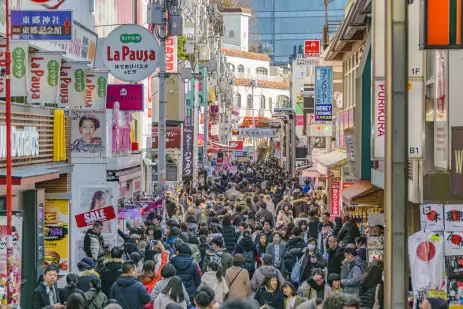
The currency used in Japan is the Japanese yen. Each yen is subdivided into 100 sen. When purchasing currency for Japan, be sure to look for the currency code JPY. Once you arrive in Japan, you'll notice that the symbol ¥ is used to indicate prices.
In larger cities, card payments are widely accepted, however, smaller shops, smaller restaurants, and some hotels still ask for cash, so we recommend you carry some yen wherever you go in Japan.
If you need to top up your cash, be wary of cash machines as you'll often incur charges, instead choose to use the cash machines in 7-Eleven machines, which are free for Mastercard or Maestro customers. Cash machines usually offer better exchange rates than traditional currency counters.
Before travelling to Japan, you could take the proactive step of informing your bank that you'll be out of the country, paving the way for a seamless journey filled with exploration and connection.
In Japan, service charges are included in the prices so tipping is not customary, and can even be considered rude. To show your appreciation, thank your host by saying "gochisosama deshita" (thank you for the meal) when you leave, or using one of the other phrases above.
What to pack when visiting Japan
Preparing for a holiday in Japan can be an exciting and straightforward process, but there are several important factors to consider before packing your suitcase. Firstly, familiarize yourself with the cultural norms and etiquette unique to Japan, such as removing shoes when entering temples and shrines - we highly recommend you pack slip-on shoes so you're not tying and retying your shoes daily.
Next, consider the season you’ll be travelling in, as Japan experiences distinct weather patterns throughout the year. Spring is a popular time to visit Japan, as it's cherry blossom season, it's often mild in temperature but can fluctuate, so it's best to pack light jackets and layers. Summer is hot and humid, so cool clothes are a must - although remember that if you are planning to visit temples and shrines, you are expected to dress modestly. In summer there's also a risk of typhoons and June and July can be particularly rainy so remember to pack an umbrella. If you're travelling to Japan in Autumn, to see its verdant foliage turn from green to vibrant yellows and reds, you are also in for pleasant temperatures. Light layers and comfortable shoes are a must to enjoy lots of walking to take in the breathtaking views. Winter temperatures average -4°C but they can reach as low as -25°C.
Lastly, don't forget to address practical matters such as ensuring you have plenty of cash, as well as the right travel insurance and, if necessary, visa. Japan primarily uses Type A (two flat parallel pins) or Type B (two flat parallel pins and a grounding pin), so remember to pack adaptors. Japan's voltage (100v) is also lower than many other countries, including the UK (230v), so if your electronics aren't dual voltage, you may need to pack a voltage converter.
What Plugs Are Used in Japan?
Japan uses type A and B plugs. We recommend taking a universal adaptor so that you’re prepared for any eventuality.
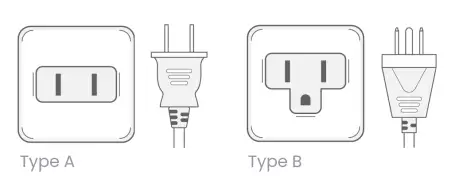
Health & Safety Advice for Traveling to Japan
Travelling to Japan is generally safe, but taking precautions ensures a smooth trip. Ensure your routine vaccinations, including measles, mumps, rubella (MMR), diphtheria, tetanus, and polio, are up to date. Consider hepatitis A and B vaccines if travelling extensively or engaging in certain activities.
Japan boasts a highly reliable healthcare system, but medical costs can be expensive. Therefore, comprehensive travel insurance covering medical emergencies, accidents, and repatriation is essential.
If you need to travel with mediation, Travel Health Pro has excellent tips on what you need to know,
but generally:
- You should always travel with your medication in your hand luggage, in case anything happens to your checked luggage.
- You should travel with your medication in its original packaging from the pharmacy.
- If possible, also take your prescription with you in case you need to get more medication.
Japanese Laws & Emergency Info
When traveling in Japan, it’s important to be aware of certain laws and customs to ensure a smooth and respectful visit:
Alcohol and tobacco:
- Drinking alcohol is legal for those 20 and over, and it’s common to see people drinking in public places like parks or on the streets. However, excessive drunken behaviour can be frowned upon, and public intoxication should be avoided.
- Smoking is allowed in designated areas but prohibited in public spaces like streets, parks, and most indoor public places. Look for smoking areas, especially in restaurants or outside train stations.
Drugs:
- Japan has strict anti-drug laws. Possession of even small amounts of illegal substances like cannabis or certain prescription drugs can result in serious legal consequences, including arrest and deportation.
Laws on behaviour:
- Public behaviour should be discreet and respectful. Loud talking, inappropriate gestures, or public displays of affection can be seen as disrespectful.
- Photography: Always ask for permission before photographing people, especially in temples or shrines. Avoid taking pictures of military or government buildings.
Emergency numbers:
- Police: 110
- Ambulance/Fire: 119
What to know before you visit Japan
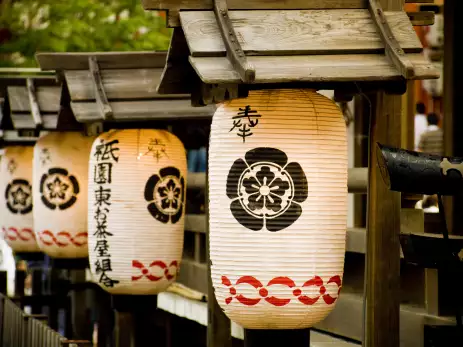
On an escorted tour, your Tour Manager will be able to help with any questions about local customs as you go, but here are some things to consider before you go:
Money
- The currency in Japan is the yen (¥).
- Credit cards are becoming more common, but cash is still preferred, especially in rural areas or smaller establishments, so we recommend always carrying cash with you
- ATMs in convenience stores (like 7-Eleven) and post offices are your best bet for withdrawing cash. However, not all ATMs accept foreign cards, so check the signage to be sure.
- Tipping is not practiced in Japan. In fact, it's often considered rude. Good service is expected as part of the job, and offering tips can make the staff uncomfortable. Rounding up your bill or offering small tokens of appreciation is acceptable in some settings, like hotels or ryokan inns, but is not expected.
Daily life
- In Japan, cars drive on the left-hand side of the road.
- Japanese society is generally very polite, and being quiet in public spaces is appreciated. Whether in trains, restaurants, or public areas, loud talking or talking on the phone is discouraged.
- Public transportation is punctual and efficient. Be prepared to follow train etiquette, such as giving up your seat for elderly or pregnant passengers and staying quiet. On many trains, there are also designated women-only cars during rush hours for safety and comfort.
- Smoking is restricted and should only be done in designated areas. Be mindful of no-smoking signs, especially in public spaces like parks and streets.
Religion
- Japan is predominantly Shinto and Buddhist, with many shrines and temples throughout the country. Religious practices are deeply ingrained in culture, but the majority of the population is not overtly religious.
- When visiting temples or shrines, it's customary to be respectful. You may see people performing rituals like washing their hands or bowing at the entrance. Take a moment to observe and follow the local customs.
- Shinto shrines often ask visitors to purify themselves by rinsing hands and mouth before entering, and temple etiquette may include offering coins or praying quietly.
- While not a religious country in the strictest sense, Japan takes its shrines and temples seriously, and disrespectful behaviour (such as loud talking or inappropriate clothing) should be avoided when visiting these sacred sites.
Food and drink
- Japanese cuisine is diverse, with rice being the staple. Don’t be surprised if rice appears at almost every meal. Common foods include sushi, ramen, tempura, and yakitori, but regional dishes like Hiroshima-style okonomiyaki (savoury pancake) and Osaka’s Takoyaki (octopus balls) are also favourites
- Drinking alcohol is common in Japan, with sake, beer, and whiskey being particularly popular. If you’re out in a bar or izakaya (Japanese pub), it’s customary to pour drinks for others before pouring your own.
- Chopsticks are the primary eating utensil. Do not stick your chopsticks upright into a bowl of rice, as it resembles a funeral custom. Also, avoid passing food directly from one set of chopsticks to another, as it’s reminiscent of a funeral rite.
- Don’t be afraid of soup slurping – it’s perfectly normal in Japan, especially when eating noodles like ramen or soba. It’s seen as a way to enjoy the meal fully, so don’t be surprised when you’re at restaurants.
Other tips
- Shoes off indoors – It's customary to remove your shoes when entering homes, temples, certain restaurants, and traditional ryokan inns. Always bring a clean pair of socks to wear inside!
- Language – While many Japanese people understand basic English, learning a few Japanese phrases (like arigato for "thank you" or sumimasen for "excuse me") can go a long way in showing respect for the local culture.
- Personal space is valued in Japan. While the country has dense populations, people maintain a high level of personal space in queues, on public transport, and when interacting with strangers.
Prepare for your Japanese adventure with Riviera Travel
Japan is a fascinating blend of ancient traditions and cutting-edge modernity, making it a dream destination for travellers. With visa-free entry for up to 90 days, British visitors can enjoy a seamless arrival - just be sure to have a valid passport, proof of onward travel, and a clear understanding of customs regulations.
To make the most of your journey, prepare with essential Japanese phrases and an understanding of the dos and don’ts of Japanese culture, ensure you have both cash and card payment options, and pack appropriately for the season. Whether you're admiring cherry blossoms in spring, exploring vibrant cityscapes, or immersing yourself in the country's rich cultural heritage, a little preparation goes a long way in ensuring a smooth and enjoyable trip.
Want to know more? Our First-Time Travellers’ Guide to Japan will provide more information on what to expect, see and do.
If you've yet to book, let Riviera Travel take the stress out of planning your holiday to Japan, take a look at our popular escorted tours to Japan.
